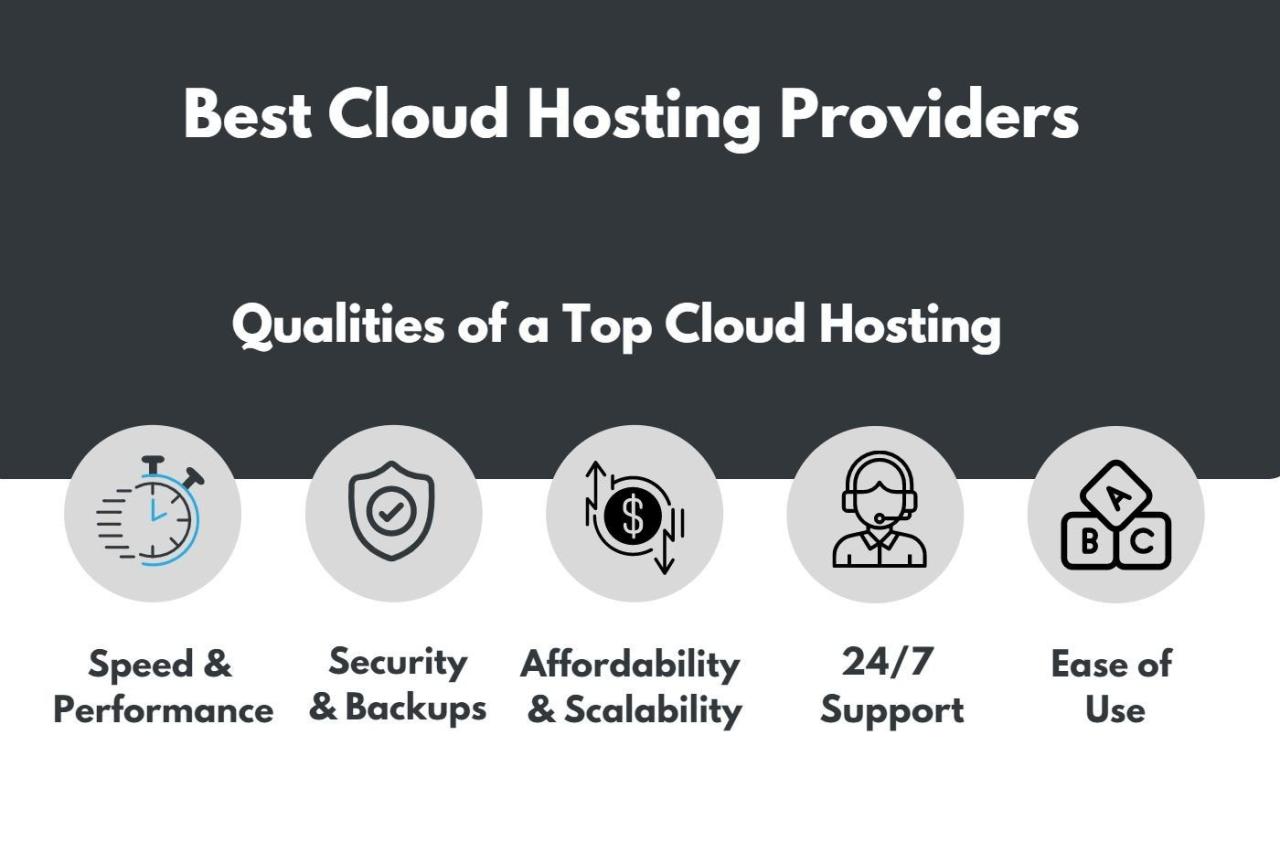Reseller web hosting empowers businesses to become their own web hosting providers, offering a lucrative opportunity to expand their services and generate revenue. By leveraging a reseller hosting plan, businesses can create and manage their own hosting packages, offering tailored solutions to clients.
This model provides flexibility, control, and scalability, allowing businesses to customize their offerings and cater to diverse client needs. From shared hosting to dedicated servers, a range of options are available, ensuring a suitable solution for every business size and budget. Reseller hosting proves to be a powerful tool for web designers, developers, and agencies, enabling them to manage multiple client websites efficiently and seamlessly.
Reseller Hosting
Reseller hosting is a web hosting solution where you, as a reseller, purchase hosting resources from a hosting provider and then resell them to your own clients. It’s a great way to expand your business by offering web hosting services without having to manage the technical infrastructure yourself.
Types of Reseller Hosting Plans
Reseller hosting plans come in various forms, each catering to different needs and budgets. These plans differ based on the resources and functionalities they provide.
- Shared Reseller Hosting: This is the most basic and affordable option, where multiple resellers share the same server resources. It’s suitable for small businesses or individuals who need a simple and cost-effective solution.
- VPS Reseller Hosting: VPS (Virtual Private Server) reseller hosting offers more resources and control compared to shared hosting. You get a virtualized server environment with dedicated resources, allowing you to manage your clients’ accounts more effectively.
- Dedicated Reseller Hosting: This is the most powerful and expensive option, where you get an entire physical server dedicated to your reseller account. It offers the highest level of performance, security, and control, making it suitable for large businesses or those with demanding hosting requirements.
Industries that Use Reseller Hosting
Reseller hosting is popular across various industries, as it offers a flexible and cost-effective way to provide web hosting services to clients. Some common industries that utilize reseller hosting include:
- Web Design and Development Agencies: Web design and development agencies often use reseller hosting to provide hosting services to their clients, offering a comprehensive package that includes website design, development, and hosting.
- IT Consultants and Managed Service Providers (MSPs): IT consultants and MSPs use reseller hosting to provide hosting services as part of their broader IT solutions, offering a comprehensive suite of services to their clients.
- E-commerce Businesses: E-commerce businesses often use reseller hosting to host their online stores, providing reliable and scalable hosting solutions to handle the traffic and data demands of their businesses.
- Educational Institutions: Educational institutions use reseller hosting to provide web hosting services to students, faculty, and staff, enabling them to create and manage their websites and online resources.
Choosing the Right Reseller Hosting Provider: Reseller Web Hosting
Selecting the right reseller hosting provider is crucial for your business’s success. It impacts your website’s performance, security, and overall customer experience.
Factors to Consider When Choosing a Reseller Hosting Provider
- Uptime: Uptime is a crucial factor as it measures the percentage of time your website is available. A reliable reseller hosting provider should offer a high uptime guarantee, typically around 99.9%. This ensures your website remains accessible to your customers even during peak traffic periods.
- Security: Security is paramount, especially when dealing with sensitive customer data. Choose a provider that offers robust security features such as firewalls, malware scanning, and regular security updates. This helps protect your website from cyber threats and ensures your customers’ data remains safe.
- Support: Having access to reliable and responsive customer support is essential. Choose a provider that offers multiple support channels, such as live chat, email, and phone, and ensures prompt response times. This allows you to address any issues quickly and efficiently, minimizing downtime and ensuring a smooth customer experience.
- Features: Reseller hosting providers offer various features, and it’s crucial to select one that aligns with your specific needs. Consider features like cPanel, WHM, and the ability to create and manage multiple accounts. This allows you to easily manage your clients’ websites and offer them a seamless experience.
- Pricing: Reseller hosting plans vary in pricing, and it’s essential to choose one that fits your budget. Consider factors like the number of websites you need to host, storage space, and bandwidth requirements. Look for transparent pricing structures and avoid hidden fees or charges.
Comparison of Reseller Hosting Providers
- Bluehost: Bluehost is a popular choice for reseller hosting, offering competitive pricing and a wide range of features. It provides a robust control panel, cPanel, and WHM, for easy management. Bluehost also offers reliable uptime and excellent customer support. However, their pricing can be higher for some plans, and their advanced features might require additional charges.
- HostGator: HostGator is another reputable reseller hosting provider known for its affordable plans and user-friendly interface. They offer a variety of features, including cPanel, WHM, and unlimited bandwidth and storage. However, their support response times can be slower compared to other providers, and their advanced features might require additional charges.
- GoDaddy: GoDaddy is a well-known domain registrar and web hosting provider offering reseller hosting plans. They offer a wide range of features, including cPanel, WHM, and robust security measures. However, their pricing can be higher compared to other providers, and their customer support can be less responsive.
Pros and Cons of Reseller Hosting Providers
| Provider | Pros | Cons |
|---|---|---|
| Bluehost |
|
|
| HostGator |
|
|
| GoDaddy |
|
|
Setting Up and Managing a Reseller Hosting Account
Setting up and managing a reseller hosting account involves several steps, from choosing a provider and configuring your account to creating client accounts and ensuring proper security measures.
Setting Up a Reseller Hosting Account, Reseller web hosting
Once you’ve chosen a reseller hosting provider, the setup process typically involves the following steps:
- Sign up for an account: You’ll need to provide basic information, such as your name, email address, and payment details.
- Choose a hosting plan: Reseller hosting providers offer various plans with different features and resources. Consider your needs and budget when selecting a plan.
- Configure your account: You’ll need to set up your account settings, including your username, password, and other security preferences. This may also involve configuring your DNS settings and email accounts.
- Install necessary software: Some providers may require you to install specific software, such as cPanel or Plesk, which allows you to manage your reseller account and client websites.
Managing Reseller Hosting Accounts
Managing your reseller hosting account involves several tasks, including:
- Creating client accounts: You can create separate accounts for each of your clients, allowing them to manage their websites independently.
- Setting up client websites: You can help your clients set up their websites, including choosing a domain name, installing website software, and configuring their website files.
- Managing server resources: You’ll need to monitor your server’s resources, such as disk space, bandwidth, and CPU usage, to ensure that your clients’ websites are performing optimally.
- Providing technical support: You’ll be responsible for providing technical support to your clients, including troubleshooting issues and resolving problems with their websites.
Securing Reseller Hosting Accounts
Security is paramount when managing reseller hosting accounts. Here are some essential security measures:
- Use strong passwords: Use complex passwords for your reseller account and client accounts, and encourage your clients to do the same.
- Enable two-factor authentication: This adds an extra layer of security by requiring a second form of authentication, such as a code sent to your phone or email, when logging in.
- Keep software up-to-date: Regularly update your server’s operating system, software, and plugins to patch vulnerabilities and prevent security breaches.
- Install a firewall: A firewall can help prevent unauthorized access to your server and protect your clients’ websites from malicious attacks.
- Implement security measures for client accounts: Encourage your clients to use strong passwords, enable two-factor authentication, and keep their software up-to-date.
Reseller Hosting for Web Design and Development

Reseller hosting offers web design and development agencies a robust platform to manage multiple client websites efficiently. It provides the tools and resources needed to deliver seamless web services, from website creation to ongoing maintenance, empowering agencies to scale their operations and provide exceptional client experiences.
Managing Client Websites and Projects
Reseller hosting streamlines the management of multiple client websites, offering agencies centralized control and simplified administration.
- Dedicated Resources: Reseller hosting provides agencies with dedicated server resources, ensuring optimal performance and stability for each client website, even during peak traffic periods.
- Simplified Account Management: Agencies can easily create and manage individual client accounts within their reseller hosting platform, granting clients access to their specific websites while maintaining overall control over the hosting environment.
- Scalability and Flexibility: Reseller hosting allows agencies to easily scale their hosting resources as their client base grows. They can allocate more resources to specific clients or projects based on their individual needs, ensuring a smooth and responsive experience for all.
- Cost-Effectiveness: Reseller hosting offers a cost-effective solution for managing multiple client websites. Agencies can leverage bulk discounts and manage their hosting expenses efficiently, making it an attractive option for businesses of all sizes.
Collaboration Between Designers, Developers, and Clients
Reseller hosting fosters seamless collaboration between designers, developers, and clients, facilitating efficient project execution and client satisfaction.
- Shared Access and Collaboration Tools: Reseller hosting platforms often include tools that enable designers and developers to collaborate on client projects seamlessly. This could involve shared file storage, version control systems, and communication tools, ensuring everyone is working on the latest version of the website.
- Client-Friendly Features: Reseller hosting solutions often provide client-friendly features such as website staging environments, allowing agencies to showcase website designs and functionalities before deployment to clients. This helps to streamline the approval process and ensure client satisfaction with the final product.
- Dedicated Support and Assistance: Reseller hosting providers offer dedicated support for both agencies and their clients. This means agencies can rely on the provider for technical assistance and troubleshooting, while clients can receive timely support for any issues they encounter with their websites.
Reseller Hosting for E-commerce
Reseller hosting offers a robust and cost-effective solution for e-commerce businesses looking to establish a reliable and scalable online presence. By leveraging the power of reseller hosting, e-commerce businesses can gain a competitive edge, enjoy greater flexibility, and achieve sustainable growth.
Advantages of Reseller Hosting for E-commerce
Reseller hosting provides numerous benefits that cater specifically to the unique needs of e-commerce businesses.
- Cost-Effectiveness: Reseller hosting allows e-commerce businesses to save on infrastructure costs by sharing resources with other clients. This is particularly beneficial for startups and small businesses with limited budgets.
- Scalability: As e-commerce businesses grow, their hosting requirements will inevitably increase. Reseller hosting provides the flexibility to scale resources easily, ensuring smooth performance and avoiding potential downtime.
- Control and Flexibility: Reseller hosting gives e-commerce businesses greater control over their hosting environment. They can customize their hosting packages, set their own pricing, and manage their clients effectively.
- Increased Revenue Potential: Reseller hosting empowers e-commerce businesses to offer web hosting services to their clients, generating additional revenue streams.
- Brand Building: Reseller hosting allows e-commerce businesses to create a branded hosting service, enhancing their brand identity and building trust with their customers.
Features and Resources for Successful E-commerce Hosting
To ensure a successful e-commerce hosting experience, it’s essential to consider the following features and resources:
- Bandwidth: E-commerce websites require ample bandwidth to handle high traffic volumes, especially during peak shopping seasons. Reseller hosting plans should offer sufficient bandwidth to accommodate anticipated traffic surges.
- Storage: E-commerce websites often require significant storage space to accommodate product images, videos, and other multimedia content. Reseller hosting plans should provide ample storage capacity to meet these needs.
- Security: Security is paramount for e-commerce businesses, as they handle sensitive customer data. Reseller hosting solutions should offer robust security features, such as firewalls, malware protection, and SSL certificates, to safeguard customer information and prevent data breaches.
- Database Support: E-commerce websites rely heavily on databases to store and manage product information, customer details, and order history. Reseller hosting plans should provide reliable database support, including MySQL and PostgreSQL.
- Email Hosting: E-commerce businesses require reliable email hosting to communicate with customers and manage their operations effectively. Reseller hosting plans should offer professional email services with spam filtering and virus protection.
Popular E-commerce Platforms and Reseller Hosting Integration
Numerous popular e-commerce platforms integrate seamlessly with reseller hosting solutions, providing businesses with a streamlined and efficient setup.
- Shopify: Shopify is a leading cloud-based e-commerce platform that offers a user-friendly interface and a wide range of features. It integrates seamlessly with various reseller hosting providers, ensuring smooth performance and scalability.
- WooCommerce: WooCommerce is a popular open-source e-commerce plugin for WordPress. It provides businesses with extensive customization options and integrates seamlessly with various reseller hosting providers, making it a versatile solution for e-commerce businesses.
- Magento: Magento is a powerful open-source e-commerce platform that offers advanced features and scalability. It is compatible with various reseller hosting providers, enabling businesses to build complex and sophisticated online stores.
Reseller Hosting and Website Performance

Reseller hosting can significantly impact your website’s performance, affecting factors like loading speed, uptime, and resource availability. Understanding these impacts and implementing optimization strategies is crucial for delivering a seamless user experience.
Impact of Reseller Hosting on Website Performance
Reseller hosting, while offering cost-effectiveness and flexibility, can present challenges in terms of website performance. The shared nature of the hosting environment means that your website’s performance can be affected by the activity of other websites hosted on the same server. This can lead to:
- Slower Loading Speeds: When multiple websites share resources, the server’s processing power and bandwidth are divided among them. This can lead to slower loading times for your website, especially during peak traffic hours.
- Reduced Uptime: If a website hosted on the same server experiences a spike in traffic or encounters technical issues, it can affect the performance and uptime of your website as well.
- Resource Availability: The shared nature of reseller hosting means that you have limited control over the server’s resources. If other websites on the server are using a significant portion of the resources, your website’s performance may suffer.
Optimizing Website Performance on a Reseller Hosting Platform
Despite the challenges, you can still optimize website performance on a reseller hosting platform by implementing the following strategies:
- Choose a Reputable Provider: Selecting a reputable reseller hosting provider with a robust infrastructure and a proven track record of delivering high performance is crucial. Look for providers with dedicated servers, high-performance hardware, and reliable network connectivity.
- Optimize Website Code: Clean, well-written code is essential for website performance. Ensure your website is optimized for speed by minimizing HTTP requests, compressing images, and using efficient CSS and JavaScript.
- Use Caching Mechanisms: Caching allows you to store frequently accessed website data in temporary storage, reducing the need for the server to process the data each time a user visits your website. This can significantly improve loading speeds.
- Leverage Content Delivery Networks (CDNs): CDNs distribute your website’s content across multiple servers geographically located around the world. This allows users to access your website from a server closer to their location, reducing latency and improving loading times.
- Monitor Website Performance: Regularly monitor your website’s performance using tools like Google Analytics and Pingdom. This will help you identify any bottlenecks or areas for improvement.
Caching and Content Delivery Networks
Caching and CDNs are essential tools for enhancing website performance on a reseller hosting platform.
Caching
Caching involves storing frequently accessed data in temporary storage, reducing the need for the server to process the data each time a user visits your website. This significantly improves loading speeds and reduces server load.
- Browser Caching: Browsers store copies of website files, such as images and CSS, locally on the user’s computer. When the user visits the website again, the browser can load these files from the cache instead of downloading them from the server, resulting in faster loading times.
- Server-Side Caching: This involves storing frequently accessed data on the server itself. When a user requests a page, the server checks the cache first. If the data is available in the cache, it is served directly to the user, bypassing the need for the server to process the request.
Content Delivery Networks (CDNs)
CDNs are networks of servers distributed geographically around the world. When a user requests a website, the CDN delivers the content from the server closest to the user’s location. This reduces latency and improves loading speeds, especially for users located far from the origin server.
- Reduced Latency: By delivering content from a server closer to the user, CDNs minimize the distance that data needs to travel, reducing latency and improving loading times.
- Improved Scalability: CDNs can handle large spikes in traffic, ensuring that your website remains accessible and responsive even during peak periods.
- Enhanced Security: CDNs can help protect your website from attacks by providing a layer of security between your website and users.
Reseller Hosting and Security
Reseller hosting, while offering flexibility and cost-effectiveness, presents unique security challenges. Understanding these risks and implementing appropriate security measures is crucial for protecting your clients’ websites and maintaining a secure hosting environment.
Security Risks Associated with Reseller Hosting
Reseller hosting inherits the security vulnerabilities of the underlying shared infrastructure. This means that a breach on one account can potentially affect others. Moreover, the reseller’s own security practices play a significant role in the overall security of the platform.
Mitigating Security Risks
- Strong Passwords and Two-Factor Authentication: Implement strong, unique passwords for all accounts, including control panels, databases, and client websites. Two-factor authentication adds an extra layer of security by requiring a second form of verification, such as a code sent to your phone or email.
- Firewalls and Intrusion Detection Systems: Firewalls act as a barrier between your network and the internet, blocking unauthorized access. Intrusion detection systems (IDS) monitor network traffic for suspicious activity and alert you to potential threats.
- Malware Protection and Regular Scanning: Implement robust malware protection software to scan for and remove malicious code from your servers and client websites. Regularly scan your system for vulnerabilities and update software to patch security flaws.
- Secure Socket Layer (SSL) Certificates: SSL certificates encrypt data transmitted between your server and clients, ensuring secure communication and protecting sensitive information. Offer SSL certificates to your clients to enhance their website security.
- Regular Backups: Regularly back up your server data and client websites to protect against data loss due to hardware failure, malware attacks, or human error. Store backups securely off-site to ensure data recovery even in the event of a disaster.
Securing Client Websites
- Account Isolation: Implement measures to isolate client accounts from each other, limiting the potential impact of a breach on one account to others.
- Security Audits: Conduct regular security audits to identify and address vulnerabilities in your reseller hosting environment.
- Client Education: Educate your clients about security best practices, including password management, website updates, and recognizing phishing attempts.
- Security Monitoring: Implement security monitoring tools to track suspicious activity and respond promptly to potential threats.
Reseller Hosting and Customer Support
Customer support is a critical aspect of any successful reseller hosting business. Your clients rely on you for reliable hosting services and prompt assistance when they encounter problems. Providing exceptional customer support can help you build trust, foster loyalty, and attract new clients.
Importance of Reliable Customer Support
Providing reliable customer support is crucial for reseller hosting services. It ensures that your clients feel confident and supported, leading to increased satisfaction and retention. Here’s why it’s so important:
- Increased Client Satisfaction: When clients experience issues, they expect prompt and efficient solutions. Responsive and helpful customer support demonstrates that you care about their needs and are committed to their success.
- Reduced Client Churn: Clients are more likely to stick with a reseller hosting provider that offers excellent customer support. If they encounter problems and receive prompt and effective assistance, they are less likely to switch to another provider.
- Improved Reputation: Positive customer experiences can lead to positive reviews and recommendations, which can attract new clients and enhance your reputation in the industry.
- Enhanced Brand Loyalty: By providing exceptional customer support, you build trust and loyalty among your clients. They are more likely to become repeat customers and recommend your services to others.
Support Options
Reseller hosting providers can offer a range of support options to meet the needs of their clients. Common support options include:
- Phone Support: Phone support provides immediate assistance and allows for personalized communication. It’s a valuable option for clients who prefer direct interaction and quick resolution of issues.
- Email Support: Email support is a convenient option for clients who prefer written communication or have non-urgent inquiries. It allows for detailed explanations and provides a record of the conversation.
- Live Chat: Live chat offers real-time assistance and is ideal for quick questions or troubleshooting. It provides a more interactive experience compared to email and allows for immediate feedback.
- Knowledge Base: A comprehensive knowledge base provides clients with self-service options and answers to common questions. It can reduce the workload on your support team and empower clients to find solutions independently.
- Community Forums: Online forums can foster a sense of community among your clients and allow them to share experiences and help each other. It can also provide valuable feedback and insights into your services.
Best Practices for Providing Excellent Customer Support
To provide exceptional customer support, reseller hosting providers should follow these best practices:
- Be Responsive: Respond to inquiries promptly and aim to resolve issues within a reasonable timeframe. Set clear expectations for response times and adhere to them consistently.
- Be Professional: Maintain a professional demeanor in all interactions, regardless of the situation. Use clear and concise language and avoid technical jargon that clients may not understand.
- Be Empathetic: Understand your clients’ perspectives and acknowledge their frustrations. Show that you care about their experience and are committed to finding a solution.
- Be Patient: Clients may be frustrated or confused, so it’s important to be patient and understanding. Avoid rushing them or making them feel pressured.
- Be Proactive: Anticipate potential issues and provide preventative measures. For example, you can send out notifications about upcoming maintenance or security updates.
- Be Consistent: Provide the same level of quality customer support to all clients, regardless of their account size or service level. Treat every client with respect and professionalism.
- Be Transparent: Communicate clearly and honestly with clients about any issues or delays. Avoid hiding information or making false promises.
- Be Accessible: Offer multiple support channels to cater to different client preferences. Ensure that all channels are adequately staffed and responsive.
- Be Accountable: Take responsibility for any mistakes and work diligently to resolve them. Apologize sincerely and offer appropriate compensation if necessary.
Reseller Hosting Pricing and Packages
Reseller hosting pricing and packages are designed to cater to various business needs and budgets. Understanding the different pricing models and packages offered by reseller hosting providers is crucial for making an informed decision.
Pricing Models
Reseller hosting providers typically offer a variety of pricing models, each with its own set of advantages and disadvantages.
- Fixed Monthly Fees: This model involves a fixed monthly payment for a predetermined set of resources, such as disk space, bandwidth, and email accounts. It provides predictable budgeting and is suitable for businesses with consistent resource requirements.
- Pay-as-you-go: This model allows you to pay only for the resources you use. You are billed based on your actual consumption of resources, such as disk space, bandwidth, and CPU usage. This model is ideal for businesses with fluctuating resource needs and can help you save money if your usage is consistently below the average.
- Tiered Pricing: This model offers different pricing tiers based on the level of resources and features provided. Each tier comes with a specific set of features, such as disk space, bandwidth, and support levels. As you move to higher tiers, you get access to more resources and features, but the price also increases. This model is suitable for businesses with varying resource requirements and can be scaled up or down as needed.
Factors Influencing Reseller Hosting Pricing
Several factors influence reseller hosting pricing, including:
- Features: The number and types of features included in the package, such as disk space, bandwidth, email accounts, databases, and security features, can significantly impact pricing.
- Resources: The amount of resources allocated to your reseller account, such as CPU cores, RAM, and disk space, directly influences pricing. More resources typically translate to higher prices.
- Support: The level of technical support provided, including response times, availability, and expertise, can affect pricing. Higher levels of support generally come at a premium.
- Data Center Location: The location of the data center hosting your reseller account can also impact pricing. Data centers in certain regions may have higher costs due to factors like infrastructure, power, and labor.
Reseller Hosting
Reseller hosting is a dynamic industry constantly evolving with emerging technologies and changing market demands. As businesses increasingly rely on online presence, the need for reliable and scalable hosting solutions is paramount. The future of reseller hosting is bright, driven by innovative trends that promise to enhance performance, security, and accessibility for both resellers and their clients.
Future Trends in Reseller Hosting
The reseller hosting landscape is witnessing significant shifts, driven by the convergence of cloud computing, automation, and advanced security measures. These trends are shaping the future of reseller hosting, offering resellers new opportunities to expand their offerings and cater to evolving customer needs.
- Cloud-Based Solutions: The rise of cloud computing has revolutionized the hosting industry, and reseller hosting is no exception. Cloud-based reseller hosting platforms offer numerous advantages, including scalability, flexibility, and cost-effectiveness. Resellers can easily scale their resources up or down based on their clients’ needs, eliminating the need for upfront investments in hardware infrastructure. This scalability allows resellers to offer a wider range of hosting plans and cater to diverse client requirements. For example, a reseller can start with a small cloud-based hosting package and gradually expand their resources as their client base grows, ensuring optimal performance and cost-efficiency.
- Managed Services: The demand for managed services is increasing as businesses seek to offload technical complexities and focus on their core operations. Resellers can leverage this trend by offering managed hosting services, providing their clients with comprehensive support for server management, security, and maintenance. This includes tasks such as software updates, security patching, and server monitoring, freeing up clients’ time and resources. Managed services not only enhance client satisfaction but also create recurring revenue streams for resellers.
- Artificial Intelligence (AI): AI is transforming various industries, and reseller hosting is no exception. AI-powered tools can automate tasks such as server provisioning, resource allocation, and performance optimization, enabling resellers to manage their resources more efficiently and provide better service to their clients. For instance, AI-driven analytics can identify potential server issues and proactively resolve them before they impact client websites, minimizing downtime and ensuring optimal performance.
- Edge Computing: Edge computing is gaining traction as businesses seek to reduce latency and improve the user experience for their customers. Resellers can capitalize on this trend by offering edge hosting solutions, enabling their clients to deliver content and applications closer to their end users. This can significantly enhance website speed and responsiveness, particularly for geographically dispersed customers.
Epilogue

In conclusion, reseller web hosting presents a compelling opportunity for businesses seeking to diversify their services and tap into the growing demand for web hosting solutions. By understanding the various types of reseller hosting plans, choosing a reputable provider, and implementing best practices for security and customer support, businesses can establish a successful reseller hosting business that fosters growth and profitability.
Reseller web hosting can be a lucrative business, especially during peak seasons like the holidays. If you’re looking for a fun way to get into the festive spirit while promoting your reseller services, why not create some eye-catching Christmas tree crafts to display at your office or online?
Just like a beautifully decorated Christmas tree, a well-managed reseller hosting business can attract customers and bring in a steady stream of revenue.




